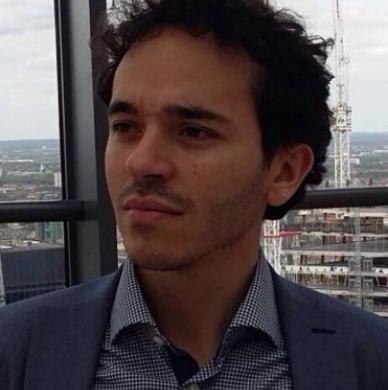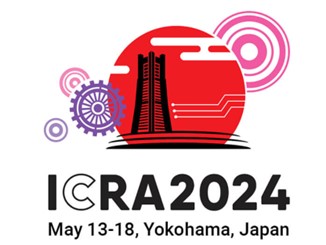
Associate Professor
BioRobotics Institute
Egidio Falotico
Bio
- EDUCATION
2013 Double PhD degree: Phd in Biorobotics at Scuola Superiore Sant'Anna (SSSA), Pisa, Italy; PhD in Cognitive Science at University Pierre et Marie Curie, Paris, France
2008 Master: Master Degree in Computer Science. University of Pisa. Italy.
- CURRENT POSITION
2025-ongoing Associate Professor at The BioRobotics Institute, Scuola Superiore Sant’Anna, Pisa, Italy
- PREVIOUS POSITIONS
2022-2025 Tenure Track Assistant Professor (RTD-B) at The BioRobotics Institute, Scuola Superiore Sant’Anna, Pisa, Italy
2018-2022 Assistant Professor (RTD-A) at The BioRobotics Institute, Scuola Superiore Sant’Anna, Pisa, Italy
2014-2017: Post doc (Research Assistant/Team Leader) at The BioRobotics Institute, Scuola Superiore Sant’Anna, Pisa, (Italy)
2013-2014: Post doc at Italian Institute of Technology, Pontedera, (Italy).
- INSTITUTIONAL AND SCIENTIFIC RESPONSIBILITIES
2020-ongoing Head of the BRAin Inspired Robotics (BRAIR) Lab
2020-ongoing Member of the Academic Board (Collegio dei docenti) of the PhD course in BioRobotics
2020-ongoing Supervisor of ESR6 (Control and behavior of self-healing soft robots) in the European Union Innovative Training Networks (ITN) SMART (Soft, Self-responsive, Smart MAterials for RoboTs)
2019-ongoing PI of SSSA for the project Proboscis project (PROBOSCIdean Sensitive soft robot for versatile gripping)
2018-2020 Co-leader of Sub-Project 10 (Neurorobotics of the Human Brain Project (HBP). PI of SSSA in the HBP.
2018-ongoing Faculty member, The BioRobotics Institute, SSSA, Italy
2015- 2019: Involvement in the following projects:
- SWARMS (Smart Networking UnderWater Robots in Cooperation Meshes, GA. n. 662107)
- RoboSoM (A Robotic Sense of Movement, G.A n. 248366)
- I-Support (A service system for bathing tasks, G.A. n. 643666)
- Smart-E (Sustainable manifacturing through Advanced Robotics Training in Europe, G.A. n. 608022)
- Joint Laboratory in Biorobotics Engineer (funded by the Italian Ministry of Foreign Affairs)
Research
Egidio Falotico’s research lies at the intersection of neuroscience, artificial intelligence, and robotics, with a strong focus on brain-inspired robotics, soft robot control, and continual and deep learning. His work aims to understand how movement is conceived, planned, and controlled by the brain and to translate these mechanisms into computational models for robotics. By leveraging insights from motor control and cognitive neuroscience, he develops biologically inspired control strategies that enhance both our understanding of neural processes and the adaptability of robotic systems.
A significant part of his research is dedicated to soft robotics, where he has contributed to the development of learning-based control models that enable soft robots to adapt to dynamic and unstructured environments. His work includes designing neural network-based controllers for soft manipulators, implementing cooperative multiagent reinforcement learning strategies, and developing adaptive mechanisms for safe human-robot interaction.
More recently, his research has expanded into the field of continual learning, investigating how robotic systems can acquire and refine skills over time without catastrophic forgetting. By integrating continual learning and deep learning techniques into soft robot control, he aims to develop robots capable of long-term adaptation and resilience, pushing the boundaries of autonomous and intelligent robotic systems.
Publications
Courses
- TEACHING ACTIVITIES
2018-2024 Chair of a PhD course on Brain-Inspired Motor Control at the BioRobotics Institute, Scuola Superiore Sant’Anna. Topics: neural networks, principles of motor control, brain-inspired strategies for robot control, AI for robot control.
2020-2024 Chair of a course on Robotics in the master degree in Computer Science at the University of Pisa. Topics: neural networks, AI for robot control, robot kinematics, sensors for robotics.
2019-2022 Co-Chair of a course on Cloud Robotics in the master degree in Bionics Engineering at the University of Pisa. Topics: Introduction to ROS and YARP, programming with ROS and YARP in python and C++.
2018-2021 Co-Chair of the PhD course on Bipedal locomotion: from humans to humanoids at the BioRobotics Institute, Scuola Superiore Sant’Anna. Topics: biped locomotion, kinematics and dynamics of humanoid robots
News

13th May, 2024
Full day workshop on Soft continuum manipulators: bottlenecks and applications
Pacifico Yokohama National Convention Hall, Yokohama, Japan. Organizers: Lucia Beccai, Egidio Falotico, Ian D. Walker, Kyujin Cho.
